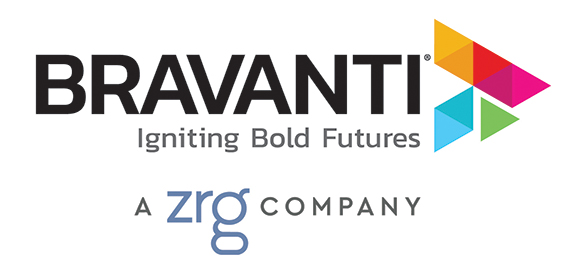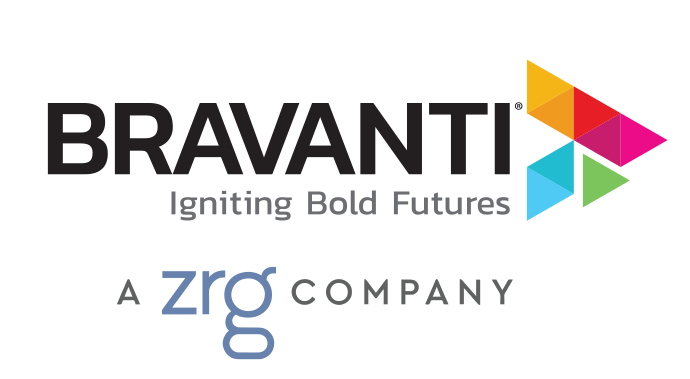As more than 10,000 Baby Boomers reach retirement age every day, with all members expected to retire by 2030, the leadership landscape is rapidly evolving. As a result, Gen X is stepping into executive roles, leaving many mid- and upper-level leadership positions open for the next generation. Naturally, Millennials are being called upon to fill these crucial leadership roles, often for the first time, creating a significant opportunity for both employers and emerging leaders.
Tips for Developing the Next Generation of Leaders
Recent studies have shown that CEOs cite developing the next generation of leaders as their biggest challenge. But we view leadership development as an opportunity for mindfulness, investment, and self-leadership.
As you consider tapping into leadership development programs, here are a few tips to get you started.
1. Give meaningful feedback
While feedback is a natural element of professional development, annual performance reviews and one-off assessments don’t provide the level or frequency of reflection needed for modern leadership development.
In fact, research indicates that emerging leaders want more feedback. A 2021 report showed that 30% of next-gen leaders said they wanted more coaching and feedback than they were receiving, in comparison to only 25% of current leaders.
Continuous feedback loops such as quarterly or monthly assessments can help employers amplify leadership development efforts and integrate more creative and consist feedback mechanisms into leadership development.
2. Integrate coaching and mentorship into professional development
While Millennials have access to vast amounts of information online, essential leadership skills such as emotional intelligence and conflict management are best learned through lived experiences.
Mentorship promotes a culture of continuous learning and adaptability, as mentors share their experiences and insights, helping mentees navigate complex professional landscapes. It enhances self-awareness, emotional intelligence, and decision-making abilities, while also enriching the mentor’s own experience, creating a dynamic and cyclical growth environment.
3. Help them to fully leverage their talents
It’s not enough to simply identify one’s talents; learning how to leverage those competencies to the fullest is paramount to an individual’s full development. Using various tools, employers can help high-potentials tap into their raw talents and develop them into core competencies.
Individual assessments provide a baseline understanding of each employee’s strengths and areas for improvement, while regular feedback ensures continuous development and alignment with organizational goals. One-on-one coaching offers personalized guidance, helping employees navigate challenges and capitalize on opportunities for growth. Additionally, individualized assignments tailored to each employee’s unique skills and interests can significantly enhance their professional development, driving engagement and productivity.
This comprehensive approach boosts individual performance and fosters a culture of continuous learning and improvement within the organization.
4. Celebrate and uplift diversity
Celebrating and uplifting diversity as a core organizational value not only establishes support for future leaders from diverse backgrounds but also helps normalize allyship as a fundamental leadership trait. This approach cultivates an inclusive environment where all employees feel valued and respected, which can significantly enhance creativity and innovation within the organization.
This commitment to diversity not only benefits individual employees but also strengthens the organization as a whole, positioning it for long-term success in an increasingly globalized and interconnected world.
5. Rethink the traditional corporate hierarchy
Today’s markets are in constant flux, changing infinitely faster than in previous generations. Consequently, the traditional hierarchy of roles and responsibilities can be rigid and limiting, especially when it comes to developing tomorrow’s leaders.
Project-based development and internal mobility can significantly enhance an individual’s core competencies and leadership capacity through active, experiential learning.
6. Openly discuss career mobility
During the Great Resignation, surveys showed that lack of career transparency was a driving factor for individuals who quit their jobs. This lack of transparency has caused leadership pipeline issues for employers around the world.
To address this, integrate career advancement and mobility conversations into employees’ professional development plans. Ask them where they see themselves in 2-5 years, what other functions interest them, and how you as a leader can support them in exploring those interests.
7. Give them autonomy
Autonomy gives your people room to grow by allowing them to tap into their own creativity and problem-solving skills. Studies have also shown that autonomy drives engagement and motivation, which are baseline needs in leadership development.
Provide your people with the necessary information (such as deadlines, minimum requirements, etc.); equip them with the tools and resources needed to succeed; and give them the room to use their own unique insights, creativity, talents, and relationships to get the job done.
8. Prioritize social and corporate responsibility
The next generation of leaders tend to have an interest about where their employers stand on local and global issues. If future leaders feel their employer is standing up for what is right, they’re more likely to emotionally invest in the company, seeking out greater responsibilities rather than keeping an eye out for the next career move.
Take a proactive stance on DE&I, social justice, climate impact, socio-economic disparity, and other issues and proudly share that stance internally and externally.
9. Prioritize your own leadership development
The world’s greatest leaders often cite their own exposure to exceptional leadership as a key factor in their success.
Demonstrating your commitment to being a great leader and growing alongside your people builds trust and reinforces the notion that leadership development is a lifelong commitment.
Engaging in continuous learning and embracing feedback from peers and subordinates help foster a culture of growth within the organization. Modeling lifelong learning encourages your team to adopt the same mindset, creating a ripple effect that strengthens the entire organization. By prioritizing your own development, you set a powerful example, inspire your team, and ensure that you are equipped to navigate the complexities of leadership in an ever-evolving business landscape.
Developing the Next Generation of Leaders
As we look toward the future and the eventual departure of today’s great leaders, we must take the opportunity to empower the next generation to lead to even greater heights. If done well, it will be one of the greatest legacies of today’s leaders.
Additional resources for developing leaders…
Executive Coaching Research: Impact & Return

